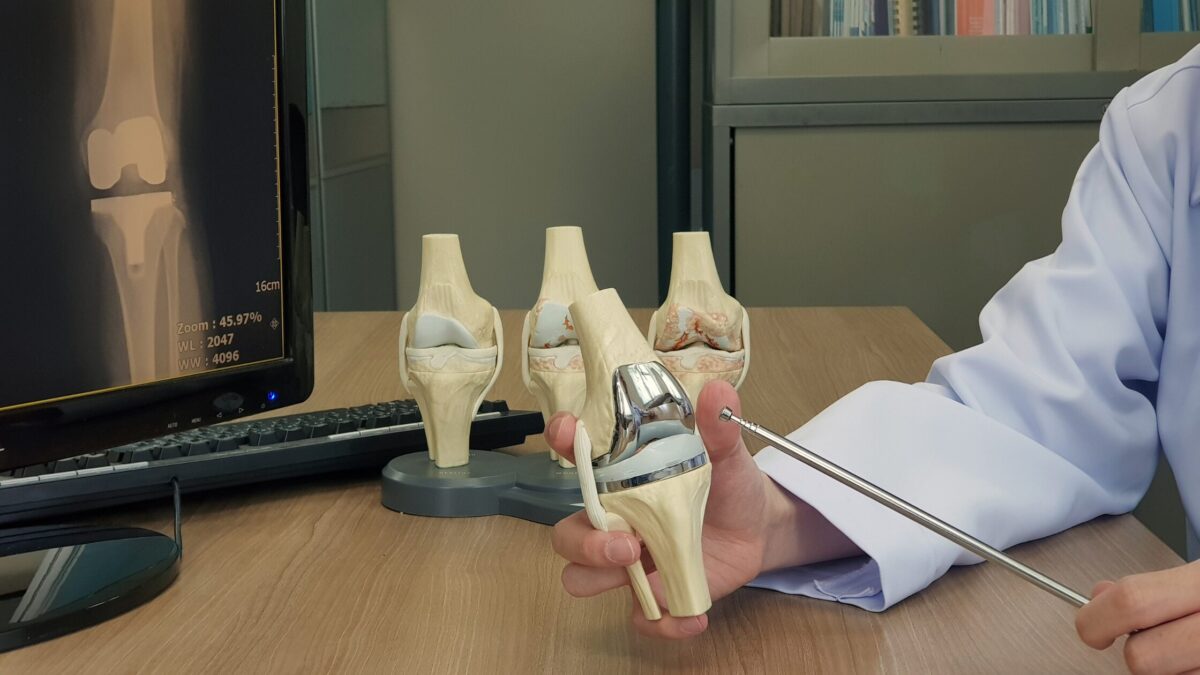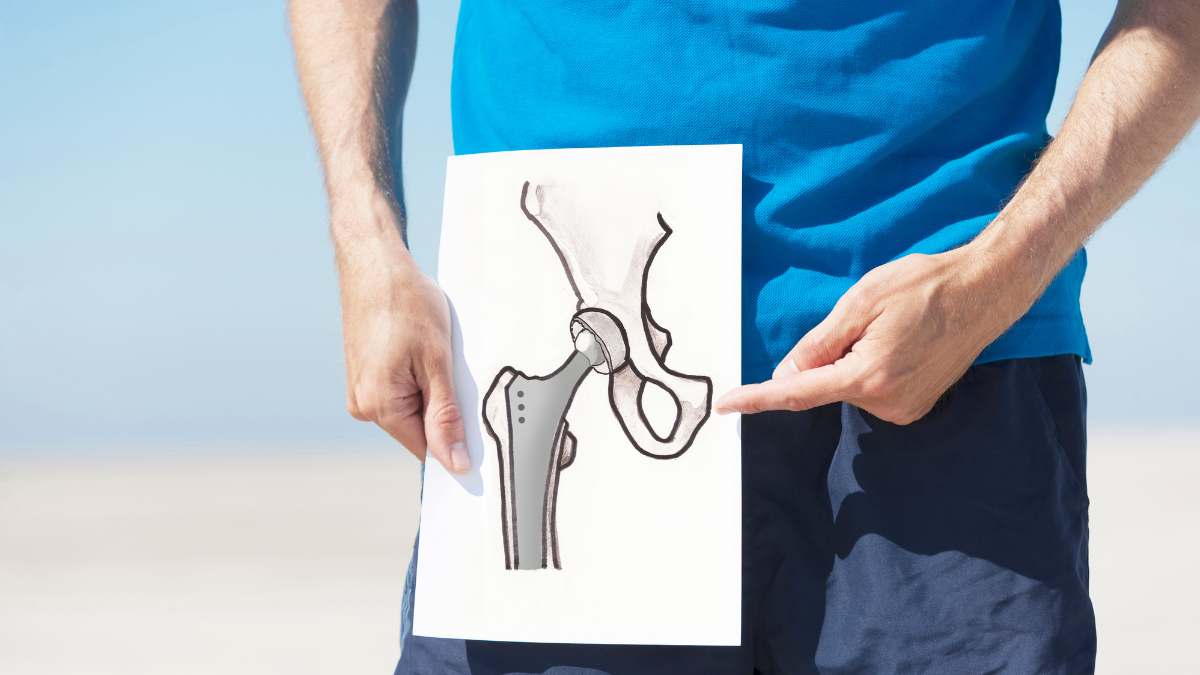- Opening hours: 24 Hours
- Call us today: +91 86960-97555
- Email us: info@drsskhatri.com

Knee replacement surgery (also known as knee arthroplasty) is a treatment that can help relieve pain and restore normal functioning of severely damaged knee joints. It is a surgical operation that involves replacement of damaged bone and cartilage from thighbone, shinbone and kneecap with an artificial joint (prosthesis) made of metal alloys, high- grade plastics and polymers.
Knee replacements are needed by people having osteoarthritis a condition where the cartilage (tissue) that cushions the knee joint wears away. As a result of this, the knee bone starts rubbing against each other, which is quite painful. People suffering from rheumatoid arthritis – a disease – that causes chronic joint inflammation, may also need a knee replacement. Others may have had an injury causing knee pain and limiting its movement. All these conditions are responsible for causing gradual increase of knee pain, thus making it worse, over a long period of time, said Dr. S S Khatri, Senior Consultant, Arthroplasty, Arthroscopy & Complex Trauma.
The decision of having a surgery is rightly taken by an orthopedic surgeon after analysing the condition of your knee in terms of range of motion, stability, strength and pain level. The extent of damage is usually monitored with the help of X-ray or MRI scan.
Many factors influence the choice of knee replacement prostheses and surgical techniques considering the age, sex, weight, body’s activity level or physical function, knee size and shape and overall health history.
Signs to decide the right time for a knee replacement:
- No effect of Medications to ease the pain.
- Treatments like cortisone injections, lubricating injections, rest, and physical therapy are ineffective to reduce your pain.
- Facing difficulty and pain in performing everyday tasks, such as bathing, getting out of bed or a chair, or climbing stairs.
- Need the aid of a walker to walk around.
- Level of deformity and gait balance.
- The pain is severe throughout day and night even when you’re sitting still or lying down.
- Your knee has deformed from an injury or arthritis.
- People with age > 55 years are more likely to get knees replaced. However, successful knee replacements are possible on patients of all ages.
Not having surgery can lead to:
- Knee pain that can cause awkward walking style and this may further affect your hips and spine.
- Weakness in muscles and ligaments and if untreated, it can cause loss of function.
- Difficulty in normal daily activities due to increase in pain and a loss of functionality.
- It may become very tough to walk, drive, and do household chores.
- Decline in overall health, due to an increasingly inactive lifestyle.
- Sadness and depression due to decreased mobility.
- Complications that may leave no option other than surgery in the future.
When is the best time for knee replacement surgery?
If your consultant tells you that you might benefit from surgery, it is worth considering doing it as soon as possible. The following listed factors can give some guidance on deciding a date for the surgery:- Surgery can be conducted any season.
- Idea on the cost, and arranging the funds.
- Knowledge about the type of company’s implant used.
- Availability of someone to take you to and from the hospital.
- Someone to help you with meals and other daily activities during recovery.
- Find someone to help with children, pets, and other dependents for the first few days.
- Fit the surgery and recovery dates with your caregiver’s schedule
- Availability of the surgeon or doctor for the follow up,




